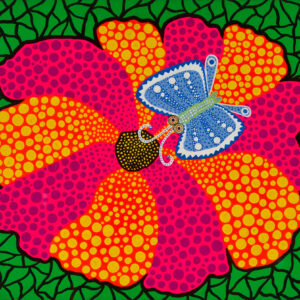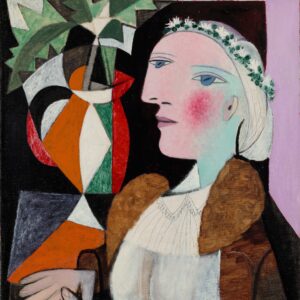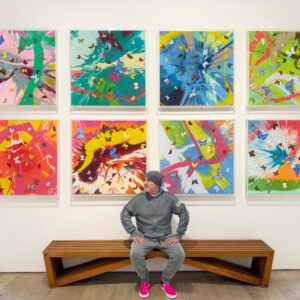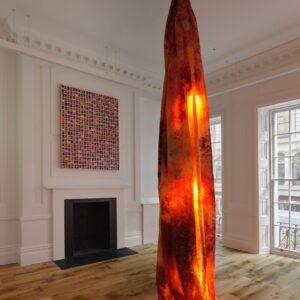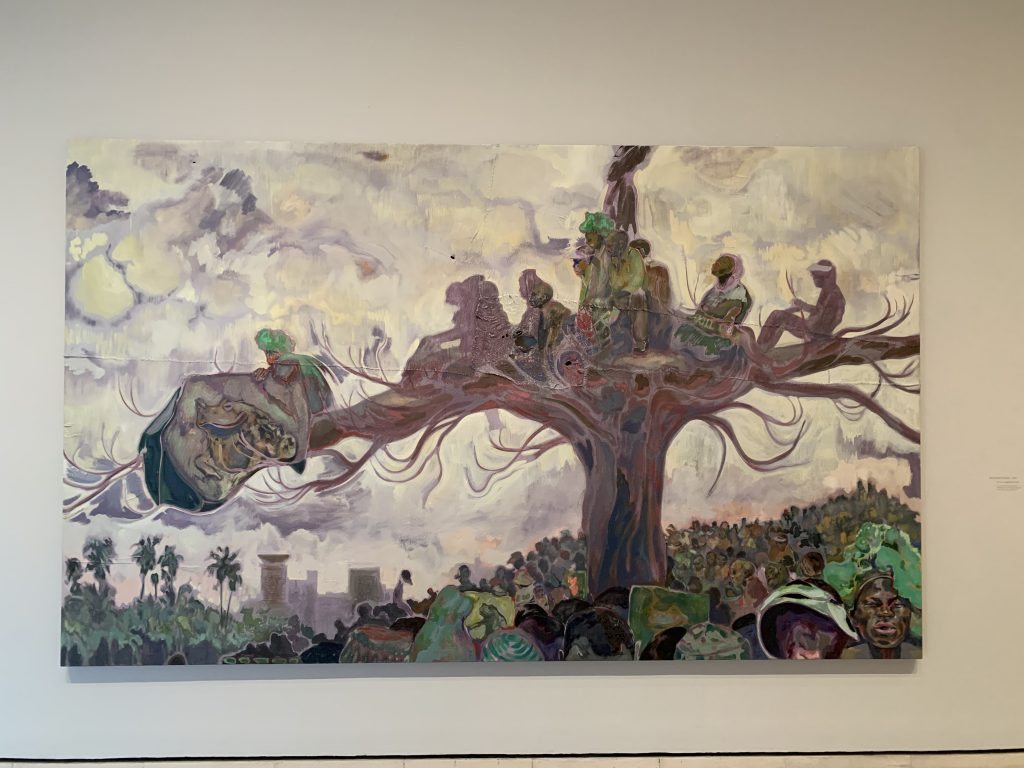
Potentially our favourite painting exhibition of 2021 opens at the Royal Academy of Arts to the public this Saturday 21st May. Michael Armitage: Paradise Edict spans the last seven years of Armitage’s work, featuring landscapes, allegorical figures and paintings inspired by the 2017 Kenyan general elections. His works are painted on lubugo bark cloth, a material traditionally made in Uganda from the inner bark of the Mutuba tree or Natal fig by the Baganda people. Lubugo, which can be translated as ‘funeral cloth’, is a highly prestigious material used for ceremonial purposes. Armitage adapted his technique to paint on this organic and irregular material instead of canvas or panel which are traditionally used by painters.
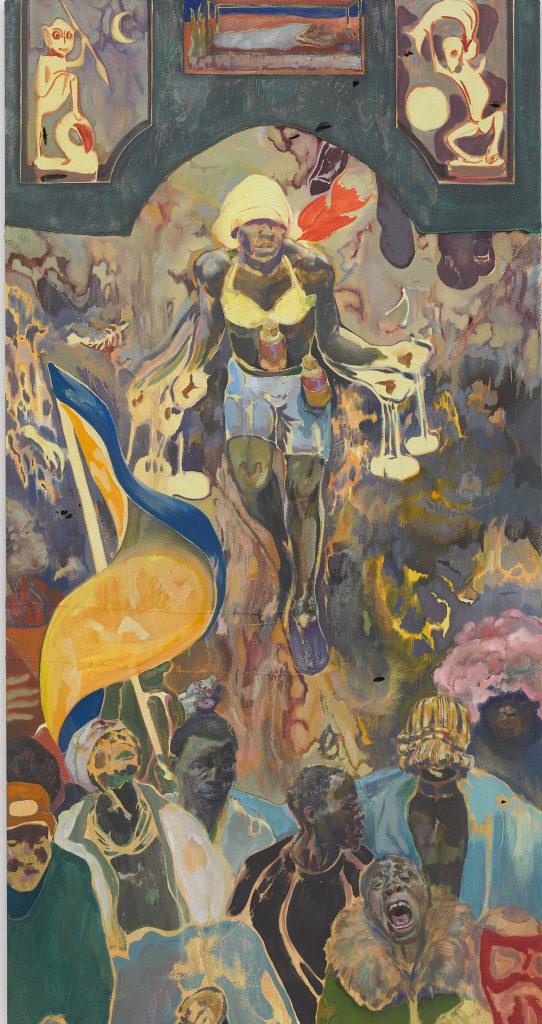
Born in Kenya in 1984, Michael Armitage graduated from the RA Schools in 2010 and now works between Nairobi and London. In his paintings, Armitage reflects on his experiences in Kenya and on current events, while drawing on contemporary East African art and European art history. Bridging artistic traditions, he looks towards the work of Jak Katarikawe, Meek Gichugu and Chelenge van Rampelberg as well as Titian, Francisco de Goya and Paul Gauguin. In his rich and multi-layered narrative paintings, Armitage questions social norms, religious ideology, politics and cultural clichés. The exhibition includes 15 of the artist’s recent large-scale works, alongside a selection of around 35 works by East African artists chosen by Armitage.
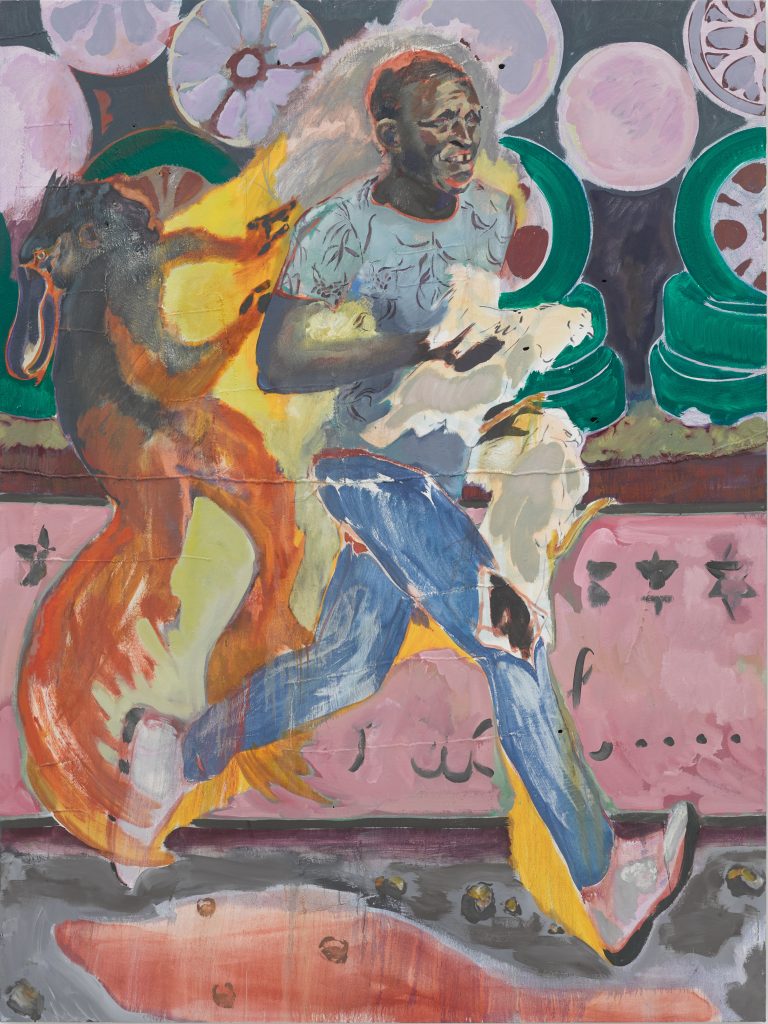
The exhibition is organised in three thematic sections, opening with a series of paintings inspired by the contested 2017 general elections in Kenya. In the run-up to the elections, Armitage joined a local TV crew filming an opposition party rally taking place in Uhuru Park, Nairobi. The atmosphere Armitage experienced and the scenes he witnessed inspired him to paint a series of works including The Fourth Estate, 2017 (The Joyner/Giuffrida Collection, Promised gift to the Nasher Museum of Art, Duke University, Durham) and The Chicken Thief, 2019 (Courtesy of the Artist and White Cube). In these works, he explores power dynamics, and the link between religious rhetoric and politics, also revealing his close observation of human expressions and gestures.
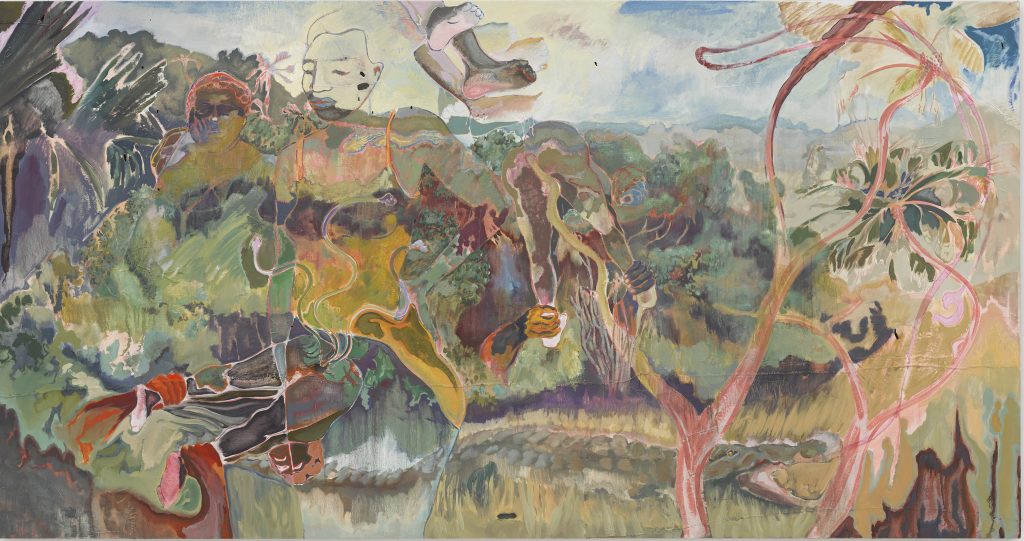
The final section, Paradise Edict focuses on Armitage’s figure paintings including Mydas, 2019 (Courtesy of the Artist and White Cube), uncanny animals posturing as humans such as Leopard print seducer, 2016 (Courtesy The Cross/Steele Family Collection) and East African landscapes such as The Paradise Edict, 2019 (The Joyner/Giuffrida Collection). The landscapes are overlaid with ghostly figures, suggesting a more complex history and mythological associations than Western stereotypes which, in exoticizing Africa, limits its history and culture to a fascination with wildlife and landscape. Instead, Armitage’s paintings betray an underlying tension and evoke sophisticated multi-layered narratives.
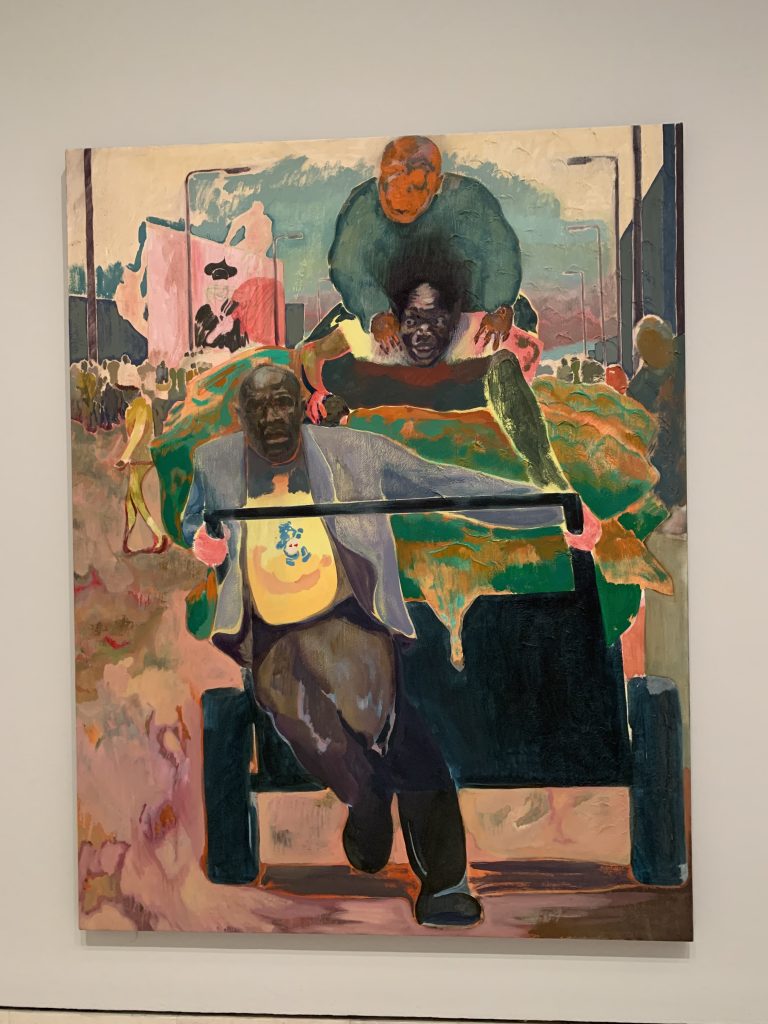
Michael Armitage: Paradise Edict, Royal Academy of Arts, The Jillian and Arthur M. Sackler Wing of Galleries 22nd May – 19th September 2021
About the Artist
Michael Armitage (b. 1984) lives and works between London and Nairobi. He received his BA in Fine
Art from the Slade School of Fine Art, London (2007) and has a Postgraduate Diploma from the Royal
Academy Schools, London (2010). Recent solo exhibitions include: Haus der Kunst, Munich (2020), The
Norval Foundation, Cape Town (2020), Projects 110, Studio Museum in collaboration and at MoMA,
New York, Museum of Contemporary Art Sydney (2019), Fondazione Sandretto Re Rebaudengo, Turin
(2019), South London Gallery (2017) and Turner Contemporary, Margate, UK (2017). In November
2020, he won the Ruth Baumgarte Award that recognises figurative artists.




